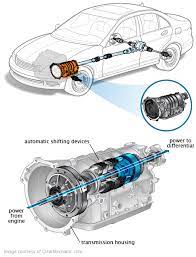What should a basic car services include?
In the hustle and bustle of daily life, it's easy to overlook the importance of regular car maintenance. However, ensuring that your vehicle receives basic servicing is crucial for its longevity, performance, and safety on the road. But what exactly should a basic car service include? Let's explore the essential components that every car owner should prioritize when it comes to maintaining their vehicle.
Oil Change: One of the most fundamental aspects of car maintenance is regular oil changes. Engine oil lubricates the moving parts of the engine, reducing friction and preventing wear and tear. During a basic car service, the old oil is drained, and fresh, high-quality oil is added to keep the engine running smoothly.
Filter Replacement: In addition to changing the oil, it's important to replace the oil filter and other filters, such as the air filter and cabin air filter. Filters help trap dirt, dust, and other contaminants, preventing them from entering the engine or the interior of the car. Regularly replacing filters ensures optimal engine performance and maintains clean air inside the vehicle.
Brake Inspection and Maintenance: The braking system is critical for safety on the road, so it's essential to include brake inspection and maintenance in a basic car service. This may involve checking the brake pads, rotors, calipers, and brake fluid levels to ensure that everything is in good working condition. Addressing any issues with the brakes promptly helps prevent accidents and prolongs the life of braking components.
Tire Rotation and Pressure Check: Proper tire maintenance is key to ensuring a smooth and safe driving experience. During a basic car service, tires should be rotated to promote even wear and extend their lifespan. Additionally, tire pressure should be checked and adjusted as needed to optimize fuel efficiency, handling, and traction on the road.
Fluid Checks: Apart from engine oil, other fluids in the car, such as coolant, transmission fluid, power steering fluid, and windshield washer fluid, should be inspected and topped up as necessary. Maintaining the proper fluid levels helps prevent overheating, corrosion, and other issues that can affect the performance and reliability of the vehicle.
Battery Testing: A basic car service should include testing the battery replacement to ensure that it's holding a charge and functioning properly. This involves checking the battery terminals for corrosion, inspecting the connections, and testing the voltage output. A healthy battery is essential for starting the engine reliably and powering electrical components in the car.
Visual Inspection: Lastly, a thorough visual inspection of the vehicle should be conducted during a basic car service. This includes checking for signs of wear or damage to essential components such as belts, hoses, lights, wipers, and suspension system. Identifying and addressing potential issues early can prevent costly repairs down the line.
A basic car service should encompass a range of essential maintenance tasks to keep your vehicle running smoothly, safely, and efficiently. By staying proactive about car maintenance and adhering to a regular servicing schedule, you can enjoy peace of mind knowing that your car is in optimal condition for the road ahead. Remember, taking care of your car today can save you time, money, and headaches tomorrow.


Comments
Post a Comment